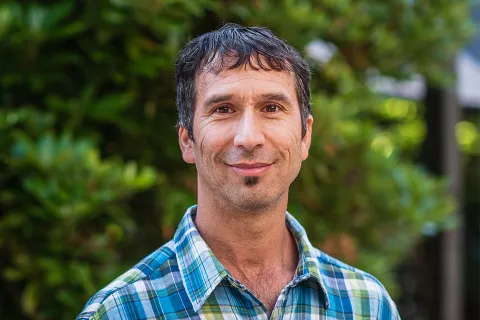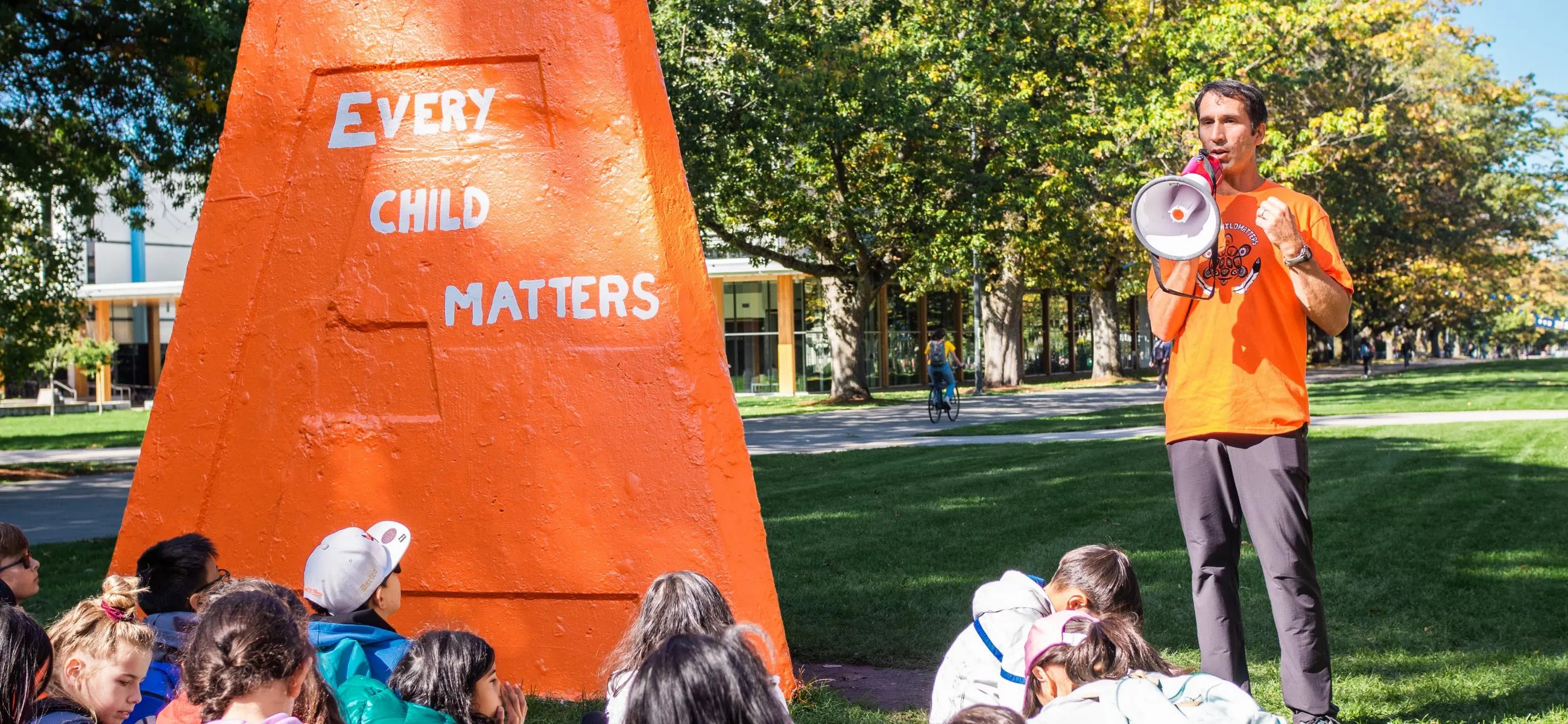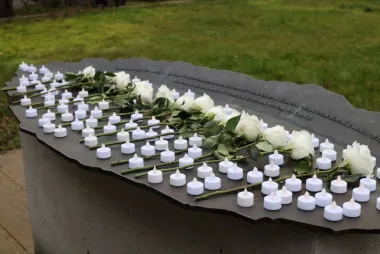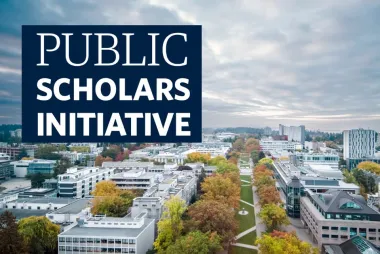UBC’s first IBET Momentum Fellow aims to decolonize engineering design and project delivery

When Danilo Caron returned to school for an engineering degree, he never imagined how much his new career and research would support his personal journey to connect with his Anishinaabe culture.
Years spent working as a masonry contractor in his father’s family business instilled in Caron a unique perspective and appreciation for engineering design, while his efforts to form closer relationships with his mother’s community of Sagamok Anishnawbek and learn Anishinaabemowin as an adult nurtured a growing desire to build understanding of Indigenous world views.
“Since returning to school, I’ve come to realize and appreciate the need for intercultural collaboration between architects, engineers and construction industry practitioners, and Indigenous Knowledge Keepers,” said Caron, now a UBC PhD candidate in civil engineering and a practicing engineer-in-training.
“The connections between my engineering career, academic research and cultural journey motivate me to help establish a bridge between the industry I am passionate about and Indigenous ways of knowing that have been suppressed under colonialism. There are many challenges facing Indigenous communities and I want to be a partner in addressing them through decolonizing engineering design and project delivery.”
Receiving the IBET Momentum Fellowship
Caron was awarded the Faculty of Applied Science’s inaugural Indigenous and Black Engineering and Technology (IBET) Momentum Fellowship for his postgraduate research on how to incorporate Indigenous world views into engineering design and project delivery.
The IBET Momentum Fellowship is part of the IBET PhD Project, a Canada-wide initiative that aims to address the urgent need for Indigenous and Black students to pursue graduate studies in STEM and build a more diverse, equitable academic environment. The Fellowship provides $30,000 per year for four years, and includes mentorship and community-wide support.
Caron’s receipt of this award also recognizes his contributions to creating a more welcoming environment for Indigenous students and advancing reconciliation across UBC, from helping to restart UBC Vancouver’s chapter of the American Indian Science and Engineering Society for Indigenous STEM students to connect with each other and professionals, to organizing the Faculty of Applied Science’s first intergenerational march for Orange Shirt Day in 2019, an annual event which has since expanded across UBC.

Exploring intersections between Eurocentric engineering design and Indigenous world views
Caron credits an Indigenous student research mentorship program for introducing him to the world of research as an undergraduate.
“Before that, research was foreign, mysterious and reserved for career academics,” he said. “The glimpse I received into research methodologies, experimentation and collaboration led me to take a directed studies course, where I experienced a new freedom to pose questions and seek understanding.”
His directed studies formed the groundwork for his master’s thesis, where he created a framework for project delivery with Indigenous communities and methods to incorporate Indigenous ways of knowing that can be adapted for different organizations.
In this work, Caron looked at two separate projects led by UBC and the City of Vancouver, where both project owners wanted to incorporate Coast Salish ways of knowing at an early stage.
“Urbanization—the act of building upon the land—reflects the values and needs of the people that occupy that land,” he said.
By building relationships with Indigenous peoples early on, you build in space for different values and ways of knowing, which will inevitably change how you look at things.
He cites UBC’s Gateway Building as one example of this intercultural collaboration in action. In planning the building—which will serve as an interdisciplinary home for health-related disciplines—UBC engaged with Musqueam and learned that the original building design had not considered a key Musqueam principle of wellness: the connection between the health of the land and human health.
As a result, UBC shifted the building site to allow for ecological restoration in the landscape design.
Caron believes this was a key step in UBC’s ongoing efforts towards reconciliation. “If UBC as a project owner had moved forward without Musqueam’s involvement, Gateway would simply have been a shell for teaching and learning about health. Now it is truly a building representing health for the UBC community and for the Musqueam nation on whose land we are situated.”
Co-creating with Indigenous communities
Caron aims to expand upon this research during his PhD by looking at how project owners can use this framework to engage with Indigenous communities across Canada, Australia and New Zealand.
“Honouring Indigenous people looks different in different places,” he explained. “Sometimes good intentions can miss the mark if they neglect where they are specifically situated. For example, installing Haida totem poles on Coast Salish territory—a place where house posts are actually representative of local cultures—can give Indigenous communities the impression they are only superficially represented".
Research like mine aims to help owners apply their good intentions in good ways, to look at whose land their projects are situated upon, and to build meaningful relationships that honour those Indigenous communities and traditional Knowledge Keepers.
With little research in this field, Caron is particularly looking forward to accessing mentorship opportunities through IBET. The Fellowship provides opportunities to alternate between an academic and industry mentor each year, which he believes will provide him with a broad perspective to forge a new path forward.
“I want to help build bridges of relationship and common understanding, where Indigenous voices and world views can be known, understood and celebrated. Community-based research is fundamentally about centering the needs of a community, so being able to co-create research with a community, that can serve what they value and need straight away, is research at its best.”


